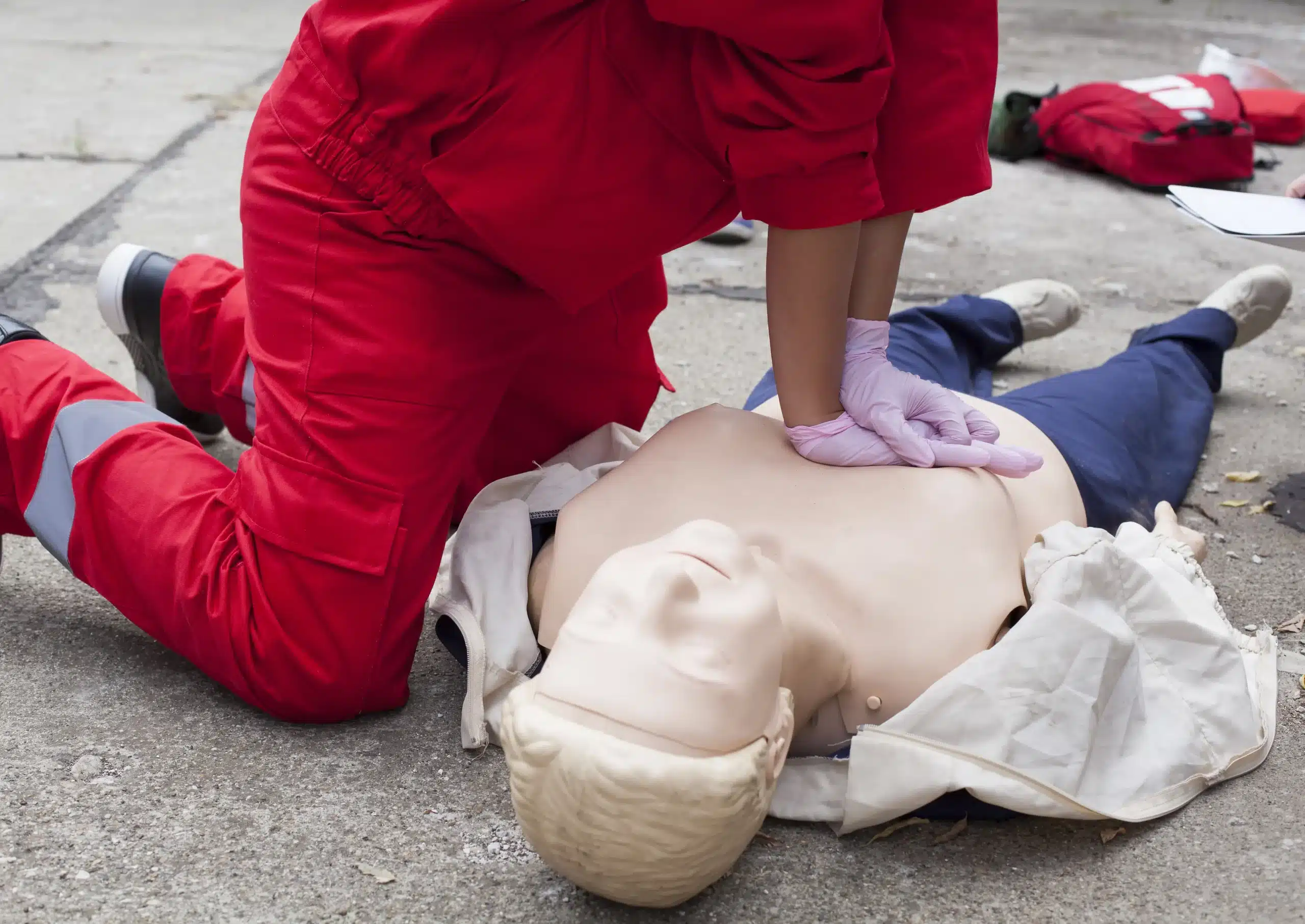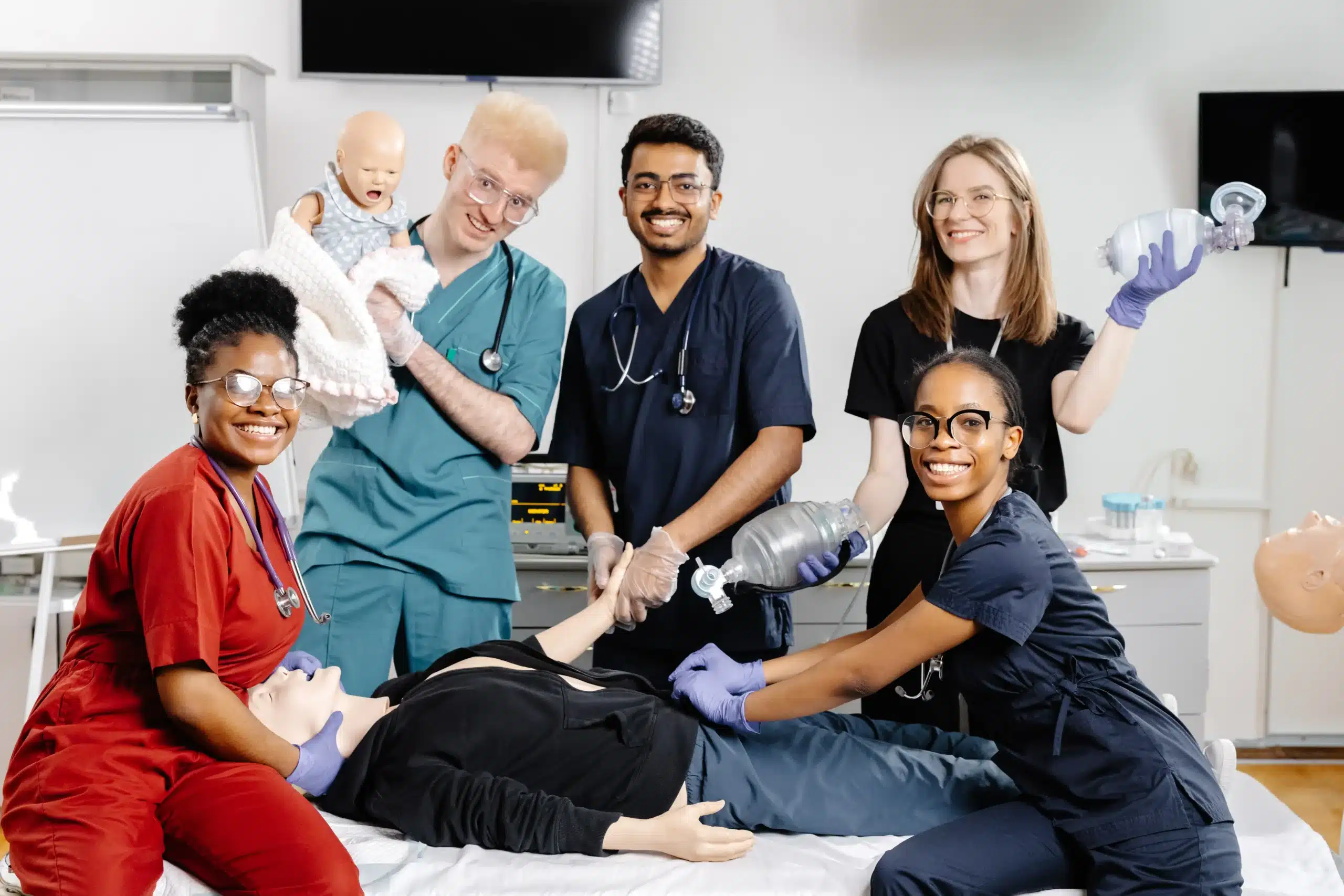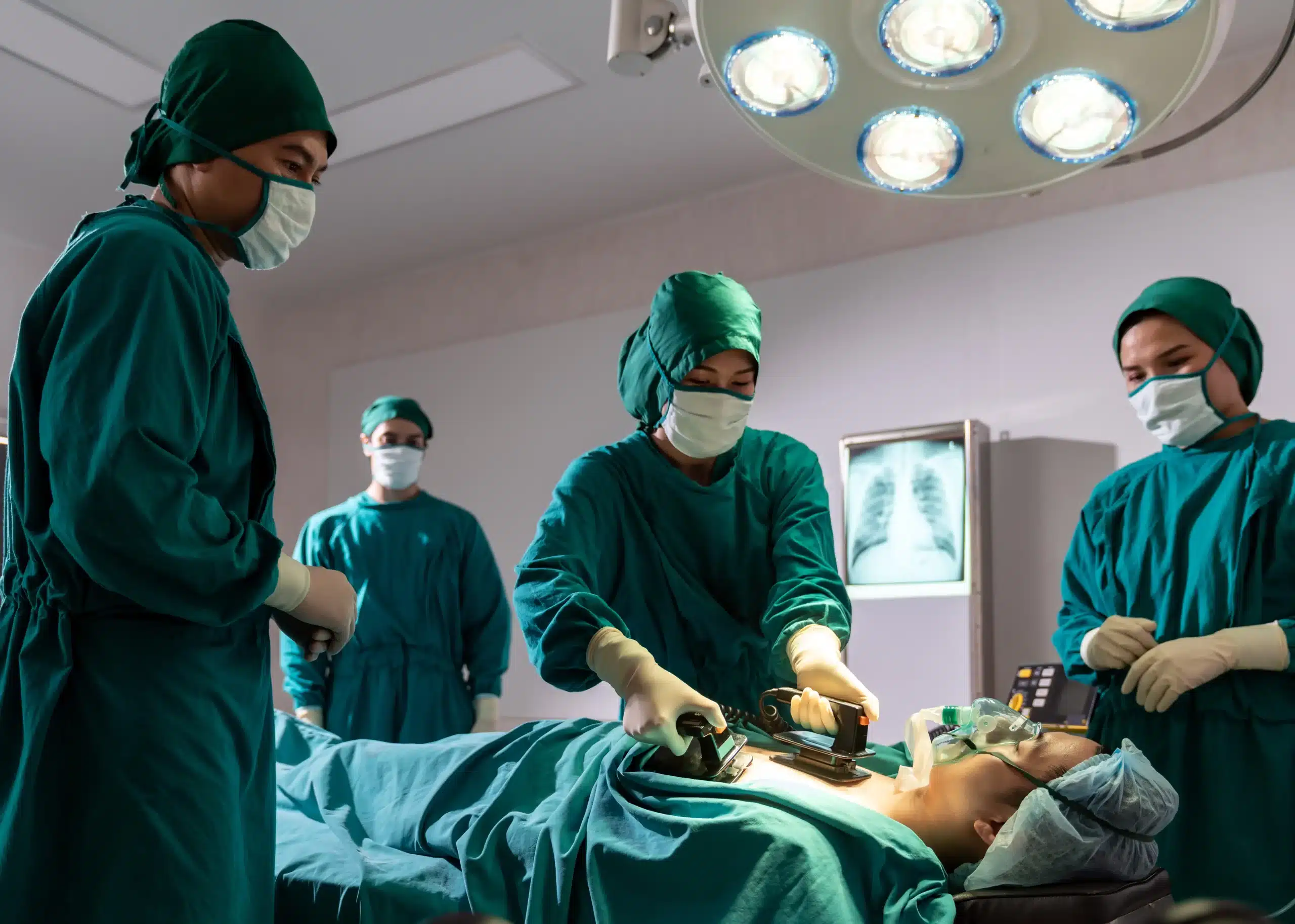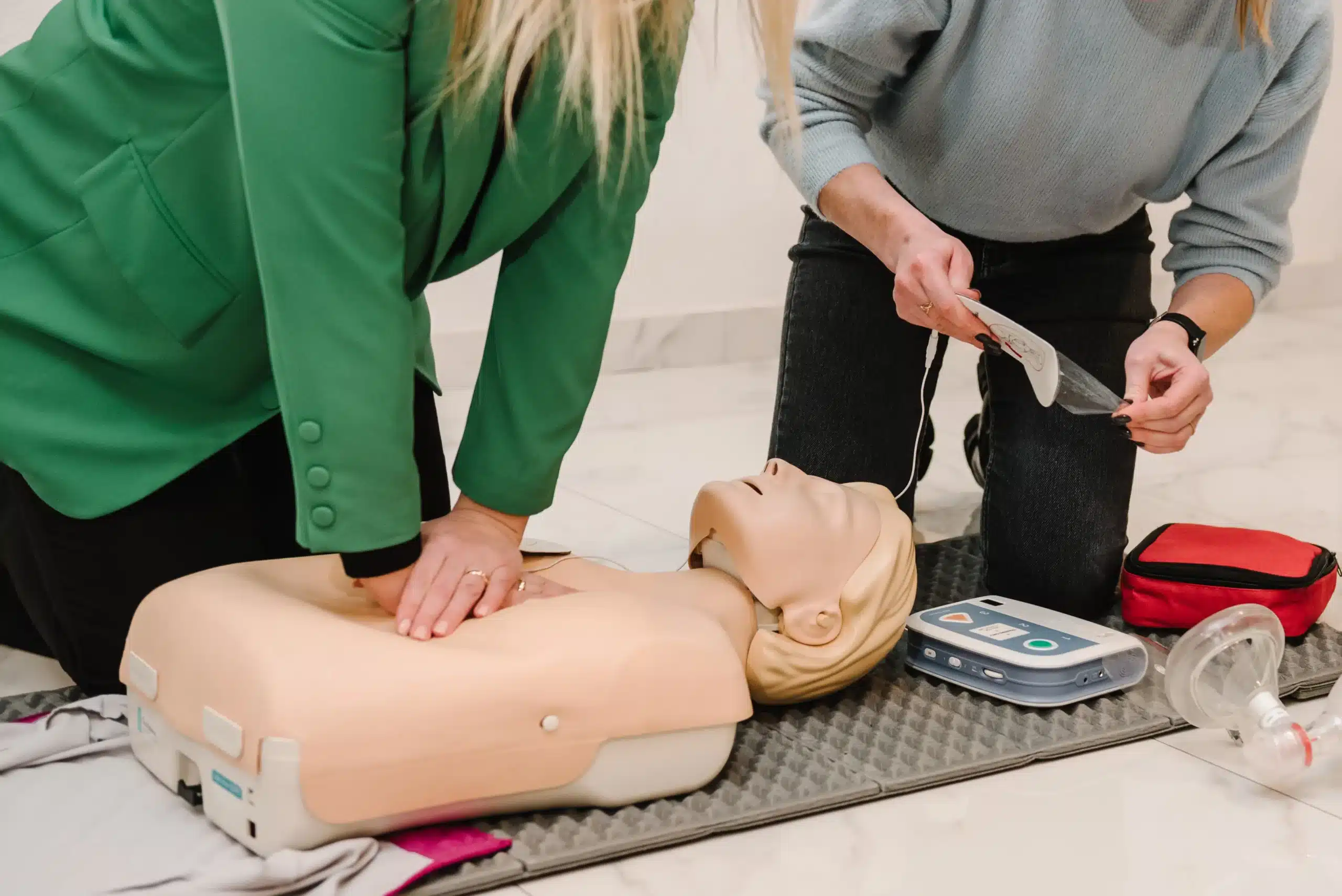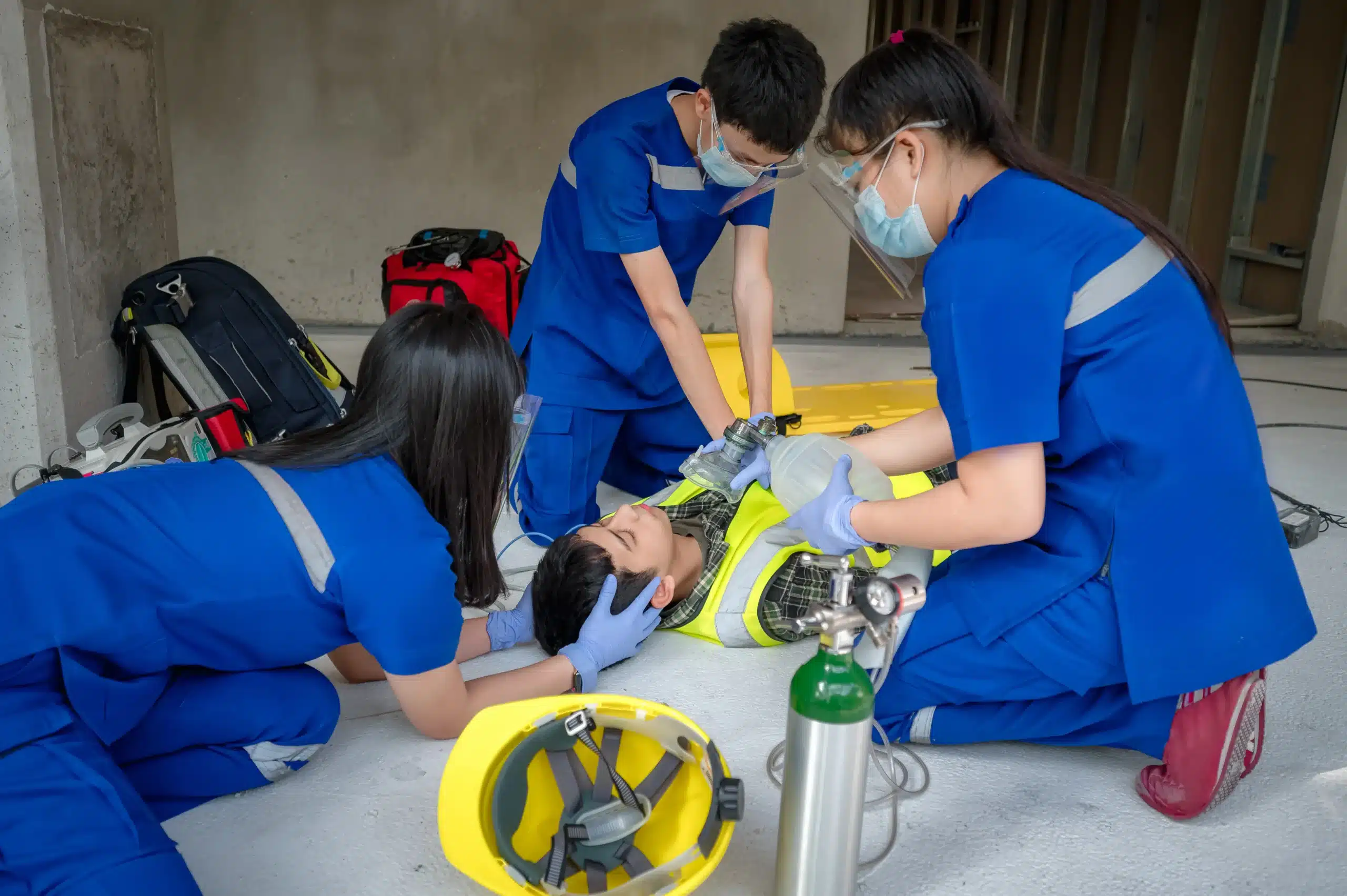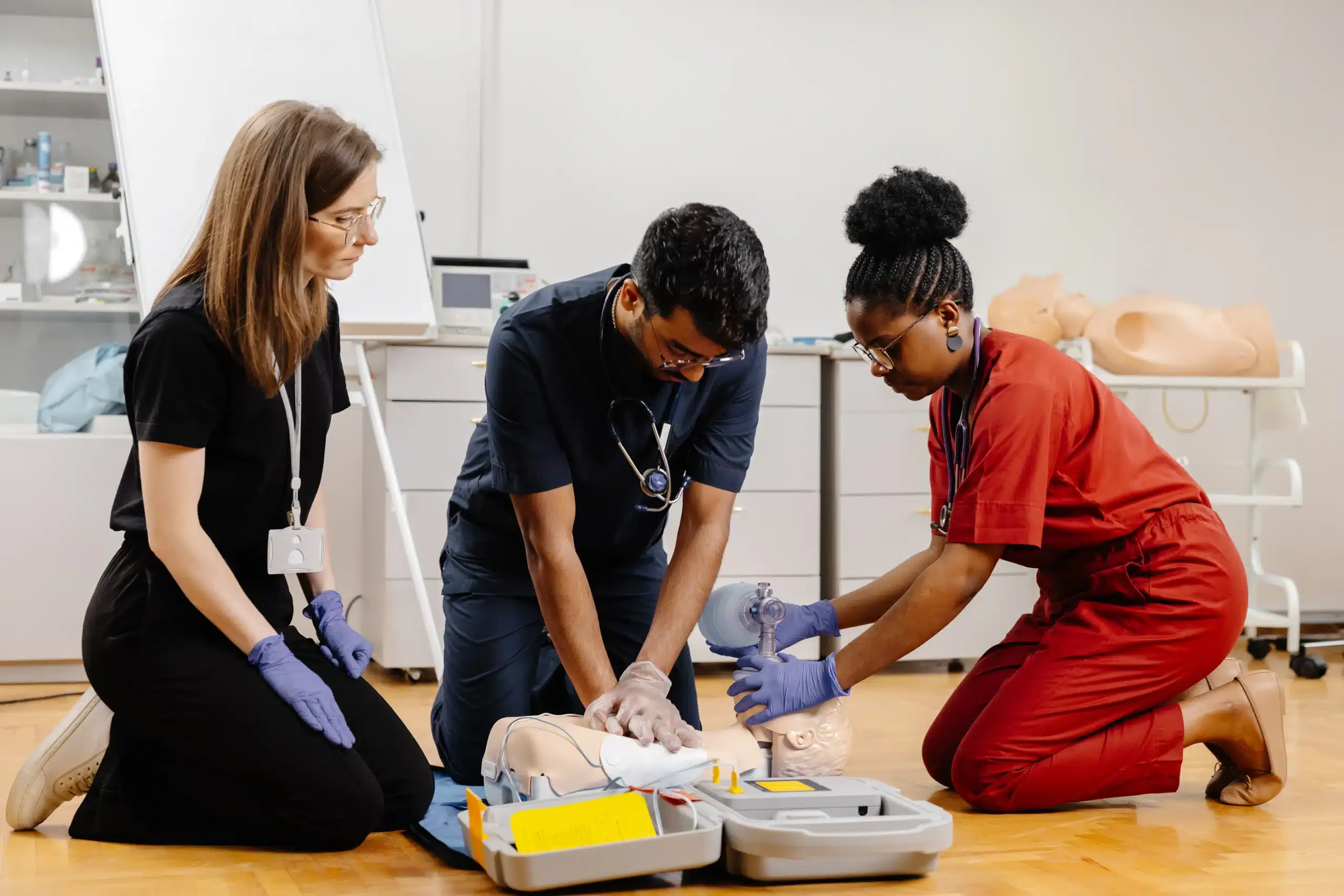Let’s face it, life gets busy. It’s easy to let certifications lapse, especially something like CPR that you hope you’ll never need to use. But when an emergency strikes, having up-to-date CPR skills can be the difference between life and death. This comprehensive guide simplifies CPR renewal in Brentwood, walking you through the process step by step. We’ll cover the various types of CPR renewal courses available, local providers in Brentwood, and the importance of AHA certification. Whether you’re a healthcare professional, a childcare provider, or simply someone who wants to be prepared, this guide will help you find the right renewal course to fit your needs.
Key Takeaways
- Regular CPR renewal is essential: Keep your lifesaving skills sharp by renewing your certification regularly. This proactive approach ensures you’re always prepared and avoids the need for a full recertification course.
- Find the right course for you: Consider factors like cost, instructor experience, and scheduling flexibility when selecting a CPR renewal provider. Hands-on training and AHA certification are key for high-quality learning.
- Stay prepared between renewals: Maintain your confidence and skills by periodically reviewing CPR guidelines and practicing techniques. Even quick refreshers can significantly improve your preparedness for emergencies.
What is CPR Renewal in Brentwood?
What is CPR renewal and why is it important?
CPR skills, like any skill, can fade with time. That’s why CPR certification is typically valid for two years. Regular renewal ensures your skills are sharp and you’re prepared to act quickly during a real emergency. If your certification expires, you’ll likely need to retake the entire course, which requires more time than a simple refresher. Renew within 30 days of your certification’s expiration date to stay current.
Common CPR training misconceptions
One common misconception is that online CPR certifications aren’t valid. In fact, online CPR training from a recognized organization like the American Heart Association is perfectly acceptable. However, employer requirements vary, so it’s always best to confirm their specific policies before enrolling in an online-only course. While online courses offer flexibility, they usually include an in-person skills assessment to complete the certification.
Brentwood’s CPR renewal requirements
Renewal costs in Brentwood depend on the specific course. For instance, ACLS renewal typically costs around $290, which includes the online portion, the in-person skills check, and the certification card. Time commitment also varies. A BLS renewal usually takes about three hours, while the initial certification course is closer to four and a half. Finding a provider with convenient scheduling and locations, like Safety Training Seminars with classes in over 60 cities, simplifies the renewal process.
Find CPR Renewal Courses in Brentwood
So, you’re ready to renew your CPR certification? Great! This section will guide you through finding the right renewal course in Brentwood. We’ll cover the types of courses available, local providers, and the importance of AHA certification.
Types of renewal courses
Renew your BLS Certification
The Basic Life Support (BLS) certification is essential for healthcare providers and anyone responding to emergencies. BLS renewal courses cover life-saving techniques, including CPR, using an AED, and relieving choking. These BLS provider courses are typically shorter than the initial certification, often around three hours. This focused refresher makes getting recertified convenient and efficient.
Renew your ACLS Certification
The Advanced Cardiovascular Life Support (ACLS) certification is for healthcare professionals who manage cardiopulmonary arrest and other cardiovascular emergencies. ACLS renewal in Brentwood usually includes online learning and an in-person skills session. Expect costs to be around $290, covering the training and your official certification card.
Renew your PALS Certification
The Pediatric Advanced Life Support (PALS) certification equips healthcare providers with the skills to respond to emergencies in infants and children. Like ACLS, PALS renewal often involves online coursework and an in-person skills check. This blended learning lets you review the material at your own pace before demonstrating your skills. Learn more about our PALS courses.
Local providers and what they offer
Safety Training Seminars
Safety Training Seminars offers a range of AHA-certified courses, including CPR, BLS, ACLS, PALS, and First Aid. They offer a low-price guarantee and convenient class schedules. See their website for information on group discounts.
Brentwood CPR Training Center
Brentwood CPR Training Center provides AHA-certified CPR and advanced life support courses. They focus on practical skills and offer various course formats.
Revive Health & Wellness
Revive Health & Wellness offers in-person CPR, First Aid, BLS, ACLS, and PALS classes. They emphasize hands-on learning to build confidence in your abilities.
AHA-Certified Courses
Choosing an AHA-certified course is essential. AHA certifications are widely recognized, showing your commitment to high-quality training. They are often a job requirement and assure you’ve received training based on the latest guidelines. You can also explore other relevant certifications, like EMSA Child Care Health & Safety and the American Academy of Pediatrics NRP. For CPR training options throughout Northern California, check out our directory.
Compare Brentwood CPR Renewal Providers
So, you’re ready to renew your CPR certification in Brentwood—great! Now, how do you choose the right provider? Comparing options based on key factors like cost, instructor experience, and available features will help you find the perfect fit.
Compare cost and duration
CPR renewal costs in Brentwood vary. Basic CPR renewals can start as low as $14, while more advanced certifications like ACLS and PALS typically range between $14 and $100. ACLS renewals average around $290, usually covering the online portion, the in-person skills session, and your official certification card. Check what each provider includes in their pricing. This CPR class guide is a good place to start your research. For ACLS recertification, this ACLS renewal guide offers a detailed cost breakdown.
Instructor qualifications and experience
Look for training centers with certified, experienced instructors. A quality training center will ensure their instructors have credentials from reputable organizations like the American Heart Association. This means you’re learning from knowledgeable professionals. Quality control measures are key for maintaining high training standards.
Unique features and benefits
Beyond the basics, consider the extras each provider offers.
Flexible scheduling
Life gets busy, so flexible scheduling is important. Look for providers with a range of class times, including evenings and weekends, to fit your schedule. A responsive customer service team, like the one at Safety Training Seminars, is a huge plus.
Hands-on training
Hands-on training is crucial for effective CPR learning. Choose a provider that emphasizes practical skills sessions to build your confidence.
Blended learning
Blended learning combines online coursework with in-person skills practice. Providers like Safety Training Seminars offer this format, letting you learn at your own pace before demonstrating your skills in person.
Student feedback and testimonials
Reading reviews and testimonials offers valuable insights. Check online platforms like Yelp for real feedback. This can help you understand the learning environment and training quality. Student feedback is a powerful tool when choosing a course.
Online vs. In-Person CPR Renewal in Brentwood
Choosing the right CPR renewal course often comes down to two main options: online or in-person. Both have advantages and drawbacks, so let’s break down what to consider when making your decision.
Benefits and limitations of online courses
Online CPR renewal offers undeniable convenience. You can learn at your own pace, fitting the training around your schedule and avoiding travel. These courses typically involve video instruction, digital materials, and online assessments. However, a potential downside is the lack of hands-on practice with a physical manikin. While some programs incorporate video submissions for practical skills, it’s not the same as real-time feedback from an instructor. It’s also essential to verify the online course’s accreditation to ensure it meets the standards recognized by your employer. Look for American Heart Association compliant programs.
Advantages of in-person renewal
In-person CPR renewal provides invaluable hands-on training. Practicing compressions and rescue breaths on a manikin with an instructor allows for immediate feedback and correction, building confidence and muscle memory. This real-time practice is crucial for responding effectively in emergencies. The interactive classroom environment also allows you to ask questions and learn from your instructor and peers.
Hybrid options: Online learning with skills assessment
If you’re looking for a balance between flexibility and hands-on learning, a hybrid approach might be ideal. Programs like the RQI (Resuscitation Quality Improvement) offer a blended learning experience. You complete the cognitive portion online at your convenience, then schedule a short, in-person skills evaluation. This option combines online learning with practical skill demonstration. This approach can be particularly helpful for busy professionals needing efficient recertification.
Choose the Right CPR Renewal Course
So, you’re ready to renew your CPR certification—great! Choosing the right renewal course is key to staying confident and prepared for emergencies. This section breaks down everything you need to know to find the perfect fit.
Factors to Consider
When selecting a CPR training provider, several factors deserve your attention. First, check if the provider offers American Heart Association courses and provides certification cards upon completion. Verify the instructor’s qualifications and look for experienced, certified professionals. Consider the location and whether it’s convenient for you. A low price guarantee can also be a plus. Finally, if you’re a medical professional, inquire about any specialized programs like an RQI program for efficient certification.
What to Expect During Renewal
CPR renewal courses are designed to refresh your skills and knowledge. Expect a review of essential CPR techniques, including chest compressions, rescue breaths, and using an AED. You’ll also likely cover updates to guidelines and protocols. Remember, CPR certification is typically valid for two years. It’s smart to renew your certification within 30 days of expiration to avoid taking a full recertification course. For more information on CPR certification validity, check out this in-depth guide.
The Importance of Hands-On Practice
Hands-on practice is absolutely crucial for effective CPR renewal. Simulations and scenarios provide the opportunity to apply your skills in a realistic environment, building muscle memory and confidence. Look for programs that prioritize hands-on training with ample time for practice and feedback from instructors. This practical experience is invaluable for retaining information and responding effectively in real-life situations.
Tips for Successful Recertification
To make the most of your renewal course, come prepared to actively participate and ask questions. Review the latest CPR guidelines beforehand to familiarize yourself with any updates. During the course, focus on mastering the techniques and understanding the reasoning behind them. Don’t hesitate to ask your instructor for clarification or extra guidance. Regularly reviewing CPR procedures ensures you’re always up-to-date and ready to respond.
Maintain Your CPR Skills Between Renewals
Staying sharp between renewals is easier than you think. Take advantage of online resources, quick refreshers, and practice scenarios to keep your skills current. Even a quick review can significantly impact your confidence and preparedness. Consider joining a local CPR study group or practicing with friends or family to reinforce your knowledge and maintain those crucial skills. For helpful resources and information, revisit this guide on CPR certification.
Related Articles
- Why CPR is Crucial in Healthcare
- CPR Myths Debunked for Effective Life-Saving Skills
- CPR Certification Brentwood: Your Complete Guide – Brentwood CPR Classes
- CPR Classes in Brentwood, CA
- Online CPR Classes in Brentwood: Your Complete Guide – Brentwood CPR Classes
Frequently Asked Questions
How long is my CPR certification valid?
CPR certifications are typically good for two years. To avoid retaking the entire course, it’s best to renew within 30 days of your expiration date. Check your card for the specific expiration date.
What’s the difference between BLS and CPR?
CPR is a specific life-saving technique within Basic Life Support (BLS). BLS encompasses a broader range of skills, including CPR, using an AED, and relieving choking. Healthcare providers and those responding to emergencies often require BLS certification.
Are online CPR renewal courses accepted?
Yes, online CPR renewal courses from recognized organizations like the American Heart Association are generally accepted. However, always check with your employer to confirm their specific requirements, as some may require an in-person skills component.
How much does CPR renewal cost in Brentwood?
Renewal costs vary depending on the course and provider. Basic CPR renewals can start as low as $14, while more advanced certifications like ACLS and PALS typically range from $14 to $100. ACLS renewals average around $290. Always check with the provider for their specific pricing.
What should I look for when choosing a CPR renewal provider?
Look for providers offering AHA-certified courses with experienced, certified instructors. Consider factors like cost, location, schedule flexibility, and whether they offer hands-on training and blended learning options. Reading student reviews and testimonials can also provide valuable insights.


